Carnivals are held throughout Argentina in the summer, the largest of which is staged in Gualeguaychú in the Entre Ríos Province, some 200 km from Buenos Aires. The colorful parade draws about 300,000 tourists each year and rivals the festivities also being held in Rio de Janeiro during the carnival season. This year, the carnival in Gualeguaychú will last from January 1 to March 7, becoming the longest in the world. Its revenues are expected to exceed $50 million.
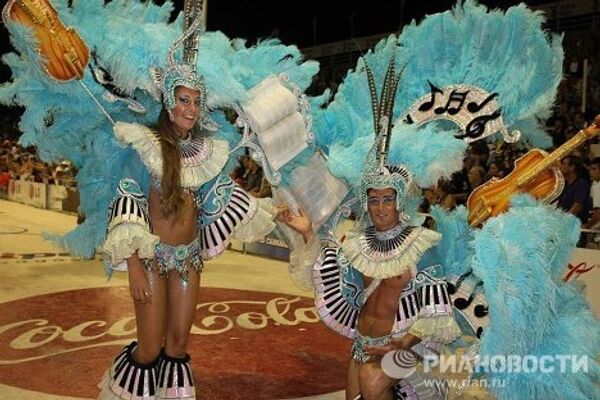
1/15
© RIA Novosti . Alexandr Solovskiy
Carnivals are held throughout Argentina in the summer, the largest of which is staged in Gualeguaychú in the Entre Ríos Province 200 km from Buenos Aires. The colorful parade draws about 300,000 tourists each year and rivals the festivities also being held in Rio de Janeiro during the carnival season. This year, the carnival in Gualeguaychú will last from January 1 to March 7, becoming the longest in the world. Its revenues are expected to exceed $50 million.
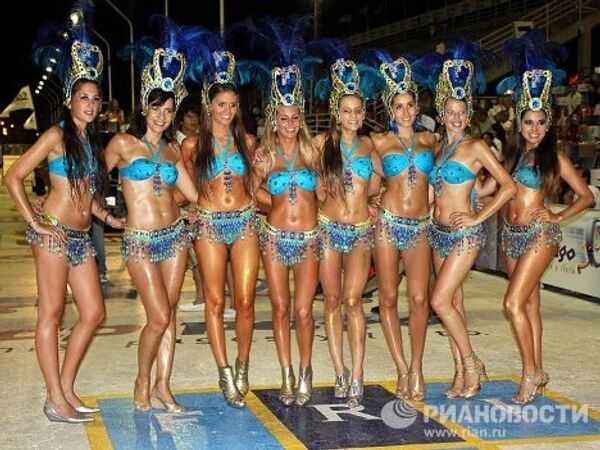
2/15
© RIA Novosti . Alexandr Solovskiy
Throughout its thirty-year history, this “festival of joy and love” has been particularly popular among Scandinavian, Canadian, and Russian tourists. A five-hour show is held every Saturday night, and tickets cost anywhere from $20 to $200.
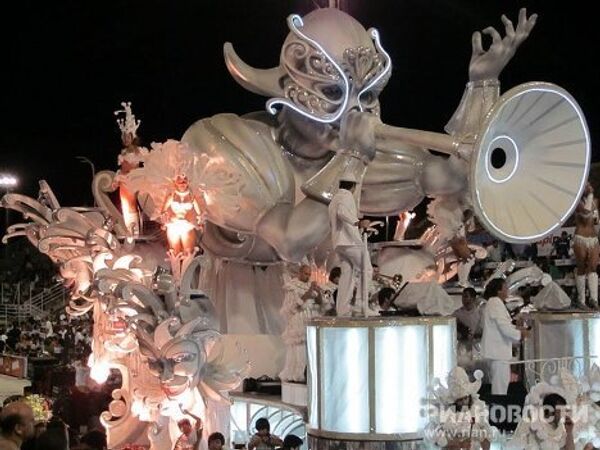
3/15
© RIA Novosti . Alexandr Solovskiy
More than a thousand amateur artists perform in dance groups called “comparsas.” Each comparsa has its “murga,” a group of dancers and musicians distinguished by a particular style, repertoire, and costumes, which do not necessarily match. ”Medieval princes and barons” dressed in gold, silver, and silk can now often be heard performing popular music in addition to traditional carnival fare.
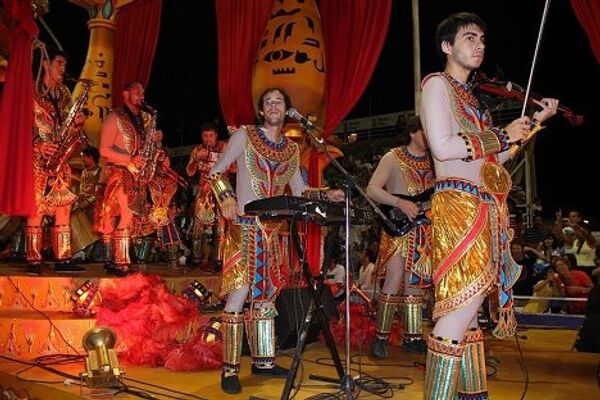
4/15
© RIA Novosti . Alexandr Solovskiy
At the end of a comparsa, the scantily clad “stars” perform a fast, African-influenced dance called the candombe. Following a decree issued by Argentine President Cristina Fernández de Kirchner, this year the carnival will not end on the first Sunday in March as it has since 1976 by order of the military regime. The last performance of the year will be held on the night of March 7-8.
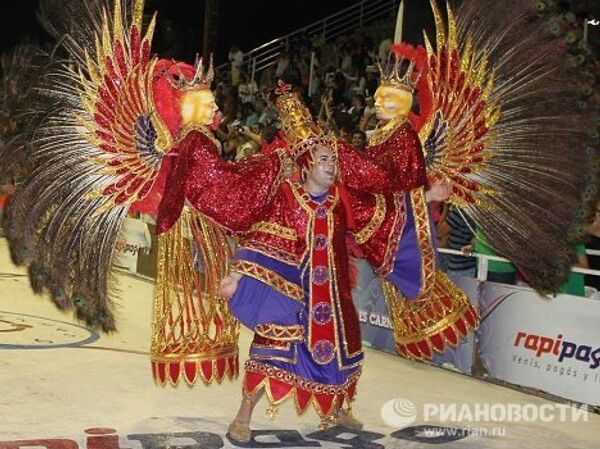
5/15
© RIA Novosti . Alexandr Solovskiy
The beating of drums and samba rhythms alongside colorful feathers, sequins, and giant floats and carved figures creates an atmosphere of festive excitement in the streets. A single costume may use up to 10,000 sequins.
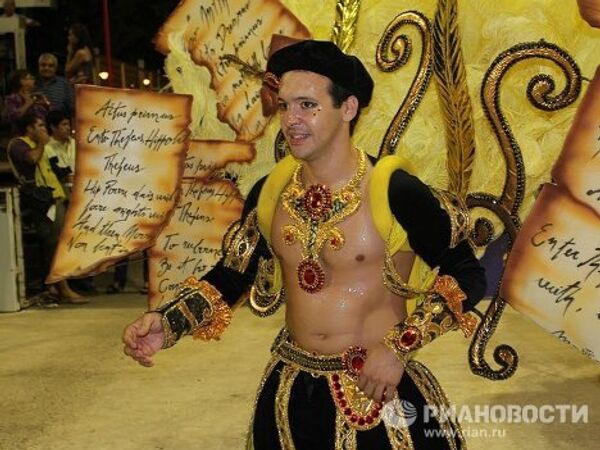
6/15
© RIA Novosti . Alexandr Solovskiy
Performers of all ages take part in the carnival procession. These wear Venetian-style costumes of the 19th century.
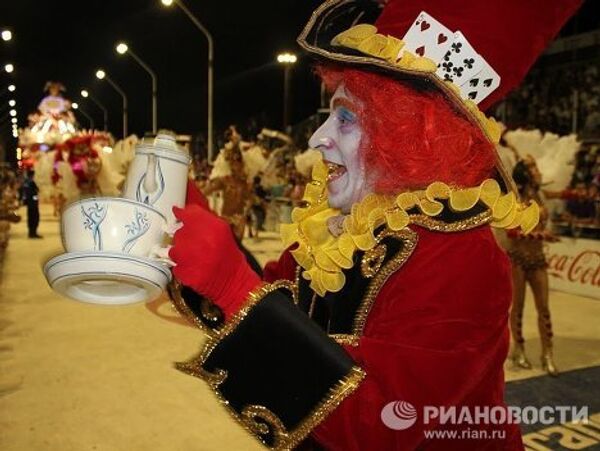
7/15
© RIA Novosti . Alexandr Solovskiy
The winning groups are chosen by an expert jury comprised of local and foreign celebrities: designers, painters, architects, and musicians. The winners receive substantial state subsidies for preparing for the next festival. The focus of Argentina's carnival is on acting and dancing. Its roots are in Medieval Italy.
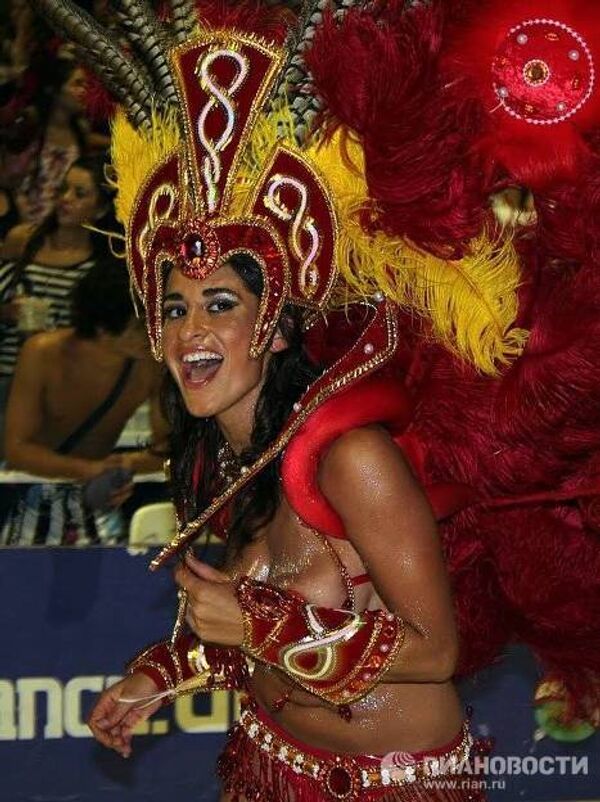
8/15
© RIA Novosti . Alexandr Solovskiy
Street carnivals first appeared in Argentina in 1600, under Spanish rule. From 1771 on, they were held in clubs and private houses, but 90 years later, they returned to the streets.
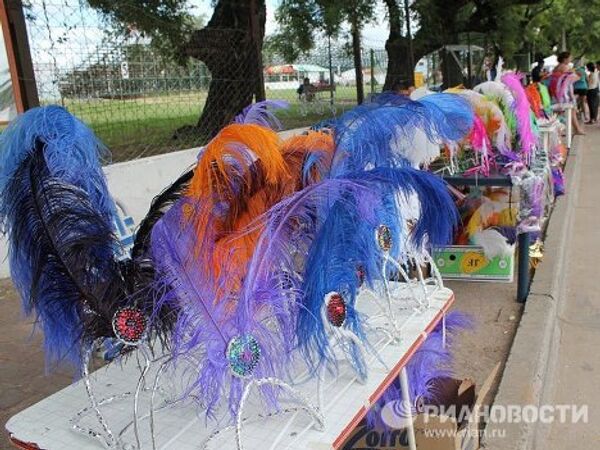
9/15
© RIA Novosti . Alexandr Solovskiy
Various souvenirs are sold in front of a Corsodrome located on the site of a deserted railroad station.
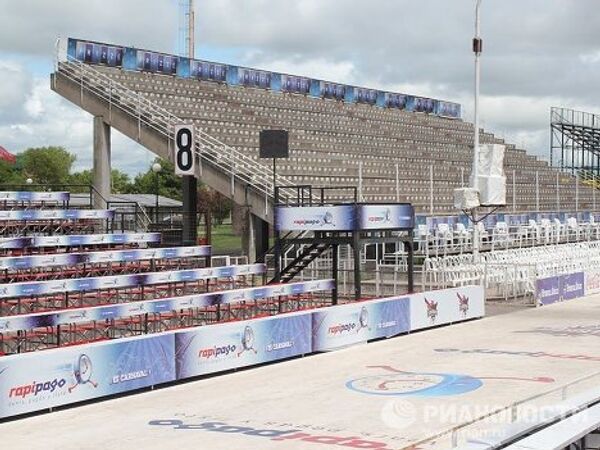
10/15
© RIA Novosti . Alexandr Solovskiy
The Gualeguaychú carnival is held at a Corsodrome, a 500-meter platform in front of the former railroad station. The stands can hold up to 35,000 spectators. Photo: the stands and platform at the Corsodrome just before the night show.
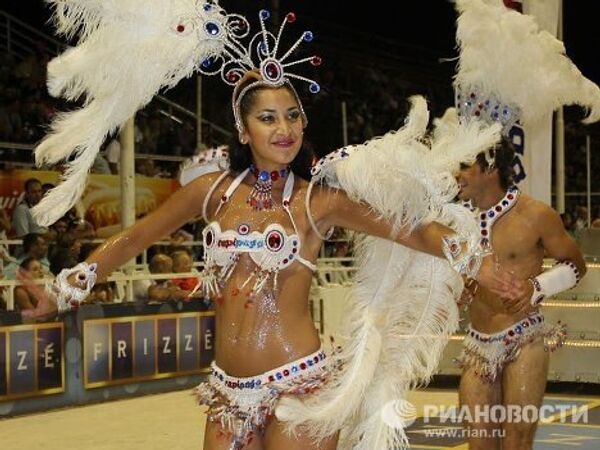
11/15
© RIA Novosti . Alexandr Solovskiy
Before the main show, the public is “warmed up” by performances advertising tourist companies and the festival's sponsors.
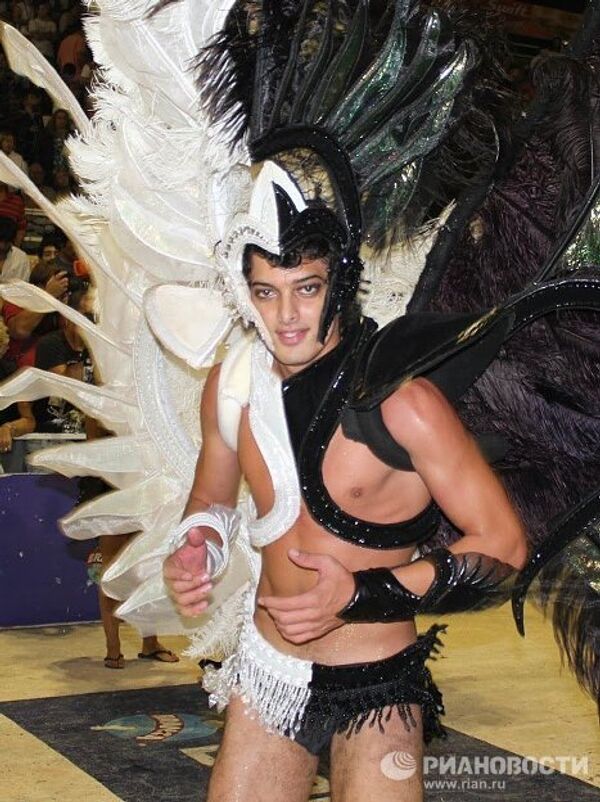
12/15
© RIA Novosti . Alexandr Solovskiy
Usually three comparses, or dance groups consisting of 300 amateur artists each, take part in the Gualeguaychú carnival.
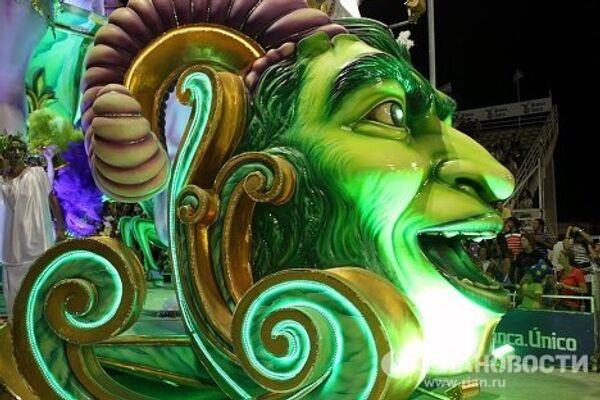
13/15
© RIA Novosti . Alexandr Solovskiy
Each of the comparsa’s performances is dedicated to a particular theme.
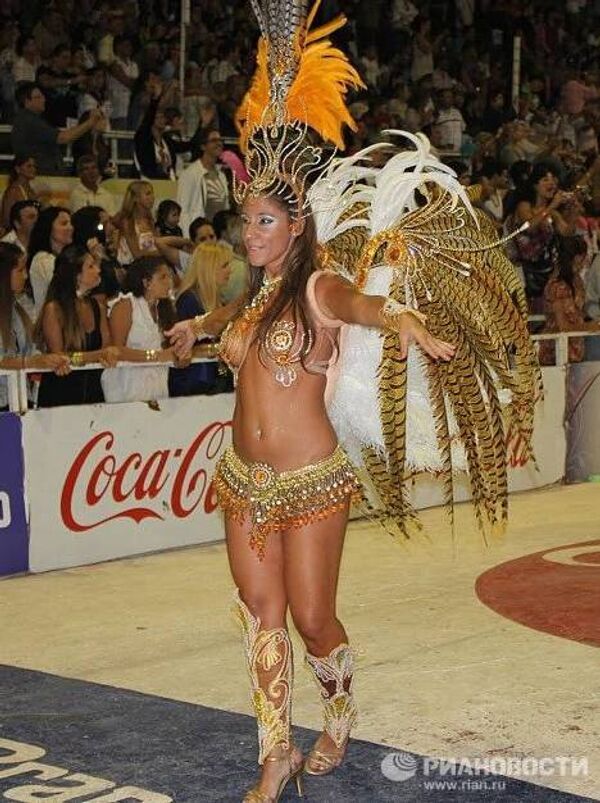
14/15
© RIA Novosti . Alexandr Solovskiy
The carnival is more than just a demonstration of colorful costumes and beautiful bodies.
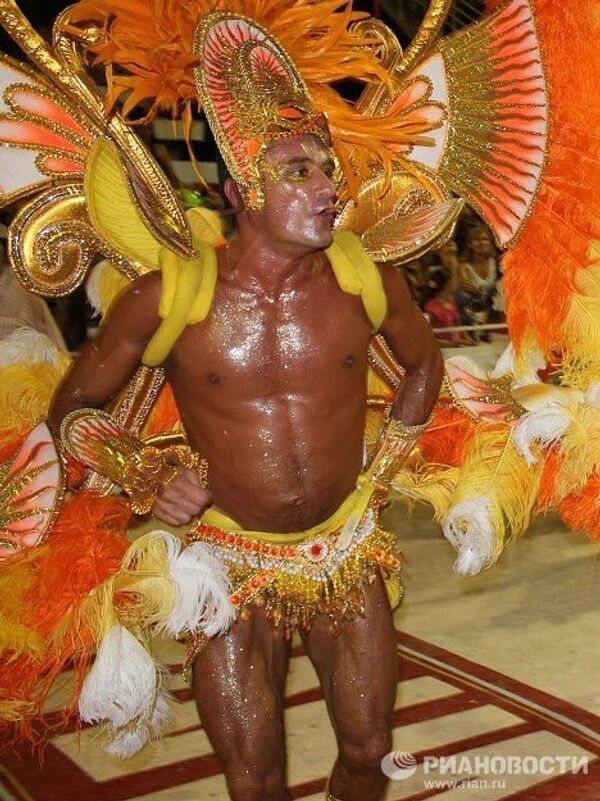
15/15
© RIA Novosti . Alexandr Solovskiy
The carnival dancers are hot and sweaty with merrymaking, even though the night temperature here is no higher than 22 degrees Celsius.

